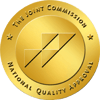At Soberman’s Estate, our commencement stone ceremonies mark the incredibly transformative journey of each of our clients. These ceremonies are more than just the end of treatment—they symbolize rebirth, newfound strength, and the beginning of a life rooted in sobriety and purpose.%20(5).png?width=672&height=480&name=(672%20x%20480%20px)%20(5).png)
- Home
- >
- The Estate News & Blog
The Power of Commencement Ceremonies at Soberman’s Estate
Topics: Treatment, Recovery, Alumni, Soberman's Estate, Healthy, mindfulness
How Horses Support the Journey from PTSD to Post-Traumatic Growth
Post-Traumatic Stress Disorder (PTSD) can feel like a dark cloud that lingers long after a traumatic experience, affecting one’s ability to function or find joy in life. Yet, there is a powerful and lesser-known possibility beyond PTSD: Post-Traumatic Growth (PTG). PTG is the positive psychological change that occurs as a result of struggling with traumatic experiences. It’s the ability to find new strength, purpose, and appreciation for life. One transformative tool for guiding people on this journey is equine-assisted coaching, where horses play an extraordinary role in the healing process. Soberman's Estate has horses on site and the clients participate in three Equine Therapy sessions per week.%20(4).png?width=672&height=480&name=(672%20x%20480%20px)%20(4).png)
Topics: Addiction, Treatment, Mental Health, Equine Therapy
Preparing for Life After Treatment: Building Confidence in Recovery
Completing residential treatment for substance use disorder is a significant milestone—one that marks the beginning of a new chapter in life. As you leave behind the structured environment of a residential treatment program like Soberman’s Estate and return to daily responsibilities, it’s crucial to equip yourself with strategies to successfully transition back into work, relationships, and personal growth.
While it may feel overwhelming at times, this stage of recovery can also be deeply rewarding. Here’s how you can navigate this transition with confidence and resilience.
1. Establish a Support System
Sobriety is a journey best traveled with support. Before leaving treatment, make sure you have a solid network in place. This may include an alumni program like the one we have at Soberman’s Estate, a local or virtual 12-step group or similar recovery group, a therapist, or a mentor. A strong support system will be vital in moments of uncertainty, helping you stay accountable and grounded.
Action Steps:
- Join an alumni group for regular check-ins with others who have completed treatment.
- Find a local recovery meeting or consider virtual options if in-person is not feasible.
- Join a men’s group, or a church group.
- Consider establishing a relationship with a sober sponsor or mentor.
2. Develop a Daily Routine
One of the most effective ways to ease back into daily life is by creating a routine. In treatment, you likely experienced structure around your day-to-day activities, which provided stability. Keeping a similar routine post-treatment can help maintain focus, reduce anxiety, and encourage healthy habits.
Action Steps:
- Set a consistent wake-up time and include morning practices such as meditation, walking, or journaling to center yourself and become present.
- Plan meals, work hours, and recreational activities ahead of time.
- Schedule time for self-care and relaxation to avoid burnout.
3. Practice Healthy Communication
One of the biggest challenges after treatment is rebuilding relationships, whether at home, with friends, or in the workplace. Learning to communicate effectively—being open about your needs and boundaries—is essential to maintaining your sobriety while fostering healthy connections with others.
Action Steps:
- Have honest conversations with those close to you about your recovery journey and the type of support you need.
- Practice active listening and non-defensive communication to strengthen relationships.
- Establish clear boundaries, especially in situations that could trigger stress or relapse.
4. Return to Work Gradually
Returning to work is a significant step, but it's important to ease back into it. Prioritize your recovery first, and consider a gradual return to the workplace if possible. A phased return will allow you to balance work responsibilities with ongoing recovery efforts.
Action Steps:
- Discuss flexible hours or workload adjustments with your employer if needed.
- Set realistic expectations and avoid taking on more than you can handle initially.
- Practice mindfulness techniques, such as deep breathing, to manage workplace stress.
5. Continue Learning and Growing
Treatment provides you with tools for staying sober, but ongoing education and self-development are key to long-term recovery. Embrace opportunities to continue learning, whether through personal development courses, therapy, or spiritual growth.
Why Taking Time Off for Treatment Could Be the Best Decision of Your Career
In today’s fast-paced, high-pressure work environment, success is often measured by productivity, ambition, and a relentless drive to achieve more. But what if the very qualities that propel you forward are the ones holding you back? For many professionals, the pressures of work can exacerbate underlying issues such as stress, anxiety, and substance use disorder. The idea of taking time off to address these issues might seem counterintuitive, but in reality, it could be the best decision you ever make for your career.
Topics: Treatment, Substance Abuse
Navigating Social Situations in Early Recovery: Strategies to Stay Sober
Reprogramming the Brain: Understanding Early Childhood Conditioning
The Formative Years: Programming the Brain
The human brain is an extraordinary organ, constantly evolving and adapting to its environment. During the first seven years of life, the brain is particularly malleable. This period is often referred to as the "formative years" because the experiences and environments a child is exposed to during this time play a crucial role in shaping their future behaviors, beliefs, and habits. During these early years, the brain operates primarily in a state of theta brainwave activity. Theta waves are associated with deep relaxation, creativity, and suggestibility, making children highly receptive to external influences. It's during this time that foundational beliefs about the world, themselves, and others are imprinted in the subconscious mind. These beliefs can be empowering, but they can also be limiting, especially if they stem from negative experiences, trauma, or dysfunctional environments.
“During these formative years, individuals begin to build piece by piece the foundation of who they are. The direct and indirect messaging from care givers and environmental cues impact the stability of these traits by either confirming or denying these definitions, birthing confidence and safety in growth or fearfulness and insecurity.” – Jodi Stone MA, LPC – Clinical Director.
The Impact of Early Programming on Substance Use Disorder
As these early experiences form the bedrock of an individual's belief system, they also set the stage for how one copes with life's challenges. If a child's early programming includes messages of inadequacy, fear, or mistrust, they may grow up with a predisposition to seek out unhealthy coping mechanisms, including substance use, to manage these unresolved emotions.
For individuals struggling with substance use disorder (SUD), understanding the connection between their early programming and their current behaviors can be a powerful step toward recovery. Many people with SUD find themselves trapped in a cycle of self-sabotage, driven by subconscious beliefs that they are unworthy of happiness, love, or success. These beliefs, often formed in early childhood, can create a perpetual state of inner turmoil, leading to the reliance on substances as a means of escape.
Reprogramming the Brain: It’s Never Too Late
The good news is that the brain's plasticity, its ability to change and adapt, doesn't end after childhood. While the early years are critical, the brain remains capable of reprogramming throughout life. This concept, known as neuroplasticity, means that with the right tools and support, individuals can replace limiting beliefs with empowering ones, effectively rewriting their mental scripts.
At Soberman's Estate, we focus on helping men identify and challenge these subconscious beliefs through various therapeutic modalities. Techniques such as cognitive-behavioral therapy (CBT), mindfulness, along with other holistic practices are powerful tools in this process. These
methods help individuals become aware of their thoughts and behaviors, recognize the patterns rooted in early programming, and consciously choose new, healthier responses.
Steps Toward Reprogramming the Mind
-
Awareness: The first step in reprogramming the brain is awareness. This involves recognizing the patterns of thought and behavior that are detrimental to one’s well-being. Journaling, therapy, and meditation are effective ways to become more aware of these patterns.
-
Challenge the Beliefs: Once you identify a limiting belief, it's crucial to challenge its validity. Ask yourself, "Is this belief based on facts, or is it a product of past experiences?" This step often requires the guidance of a therapist or counselor to help navigate deep-seated beliefs.
-
Replace with Empowering Beliefs: After challenging a limiting belief, consciously replace it with a positive, empowering one. For example, replace "I am not good enough" with "I am worthy of love and success." This new belief should be reinforced through daily affirmations and visualization.
-
Consistent Practice: Reprogramming the brain is not a one-time event; it requires consistent practice. Incorporating daily routines that reinforce new beliefs, such as mindfulness exercises, positive affirmations, and regular therapy sessions, is essential for lasting change.
The Path Forward
While early childhood programming plays a significant role in shaping who we become, it does not have to define us. The journey to recovery and personal growth involves understanding and, when necessary, reprogramming the subconscious mind. At Soberman's Estate, we empower our clients to take control of their lives by helping them rewire their brains, replace limiting beliefs, and build a solid foundation for a future free from substance use.
“As an adult, if the messages and environment cues feel untrue, unhealthy or simply unwanted, doing the work to reframe and restructure these thoughts and messages is not only possible, but the magic ingredients needed release pain from the past and pursue happiness.” Jodi Stone MA, LPC
By taking the time to understand the origins of our behaviors and making a conscious effort to change, we can all create a life that aligns with our true potential.
Soberman's Estate is a residential men's addiction treatment center that provides discreet, individualized, sophisticated recovery and wellness services for adult men that want to recover from substance use disorders, and or other behavioral issues such as trauma, anxiety, depression, stress, or other addictions.
If you or someone you know are struggling and wondering about the next step for receiving help, please call our Admissions Director for a complimentary consultation at 480.571.9742, or email info@SobermansEstate.com.
Topics: Addiction, Treatment, Soberman's Estate
Embracing Reflections: Overcoming the Challenge of Seeing Our True Selves
In the journey of sobriety, one of the most profound challenges that men face is the act of looking in the mirror and seeing the amazing reflection of who they are now, rather than being haunted by the ghosts of their past. At Soberman's Estate Men's Residential Treatment Center, we understand the weight of this struggle and the importance of overcoming it.
Topics: Recovery
The first thing I should mention is that this is not my first visit to Soberman's Estate. I spent 45 days here in the Spring of 2021. When I left I was filled with optimism and felt that for the first time in my life I was prepared to deal with my addiction and lead a normal life. Why I am back here is a story within itself, and actually does not seem to be relevant to this review. Suffice it to say, that this facility is the best place that I can be at this day in my life. When I left Soberman's Estate in 2021 I wrote a very complimentary review of the facility, staff, and treatment program.
Topics: Soberman's Estate
Relapse is a common concern for anyone on the journey to sobriety. At Soberman's Estate Men's Residential Treatment Center, we believe that a proactive approach to relapse prevention is essential for long-term recovery. A well-thought out relapse prevention plan not only helps you anticipate and navigate potential challenges but also empowers you to maintain your hard-earned sobriety. Here are a few steps to help you create an effective relapse prevention plan.
Adult Men's Residential Treatment Myths and Reality
Entering residential treatment can be a daunting prospect for many men. Society has long perpetuated myths and stigmas surrounding the treatment for substance use disorder, making it difficult for those in need to seek the help they deserve. At Soberman's Estate Men's Residential Treatment Center, we are committed to debunking these misconceptions and providing a safe, supportive environment for men on their journey to sobriety. Adult men seeking private room upscale superior residential treatment for their alcoholism, addictions, anxieties, and or depression have found what they were looking for at Soberman’s Estate.














